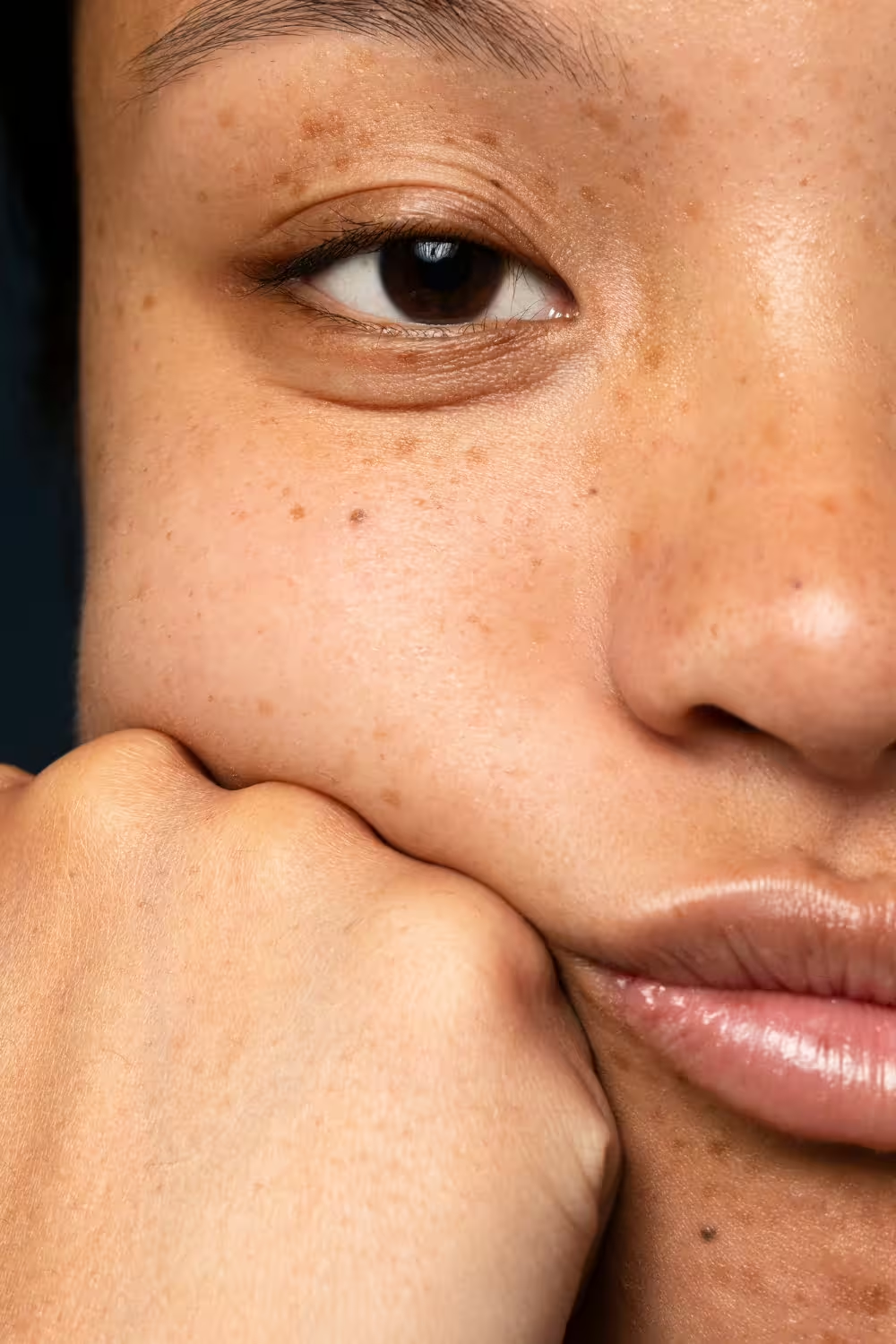Find the right care right when you need it. Start by choosing your visit reason, and we’ll help you find the right care.
There are no health problems associated with dark spots. However, some people may wish to remove them for cosmetic reasons. In such cases, treatment options include:
Bleaching creams contain hydroquinone, with or without tretinoin.
Dark spots typically fade over several months and can make the skin more susceptible to UV rays. Therefore, sunscreens are important.
Other options include medical procedures such as intense pulsed light treatment, chemical peels, dermabrasion, and cryosurgery.
Dark spots are not always preventable. However, some of the ways that can help reduce the chances of getting them include:
